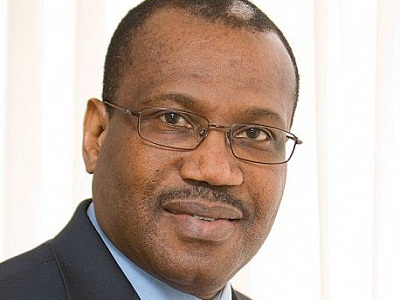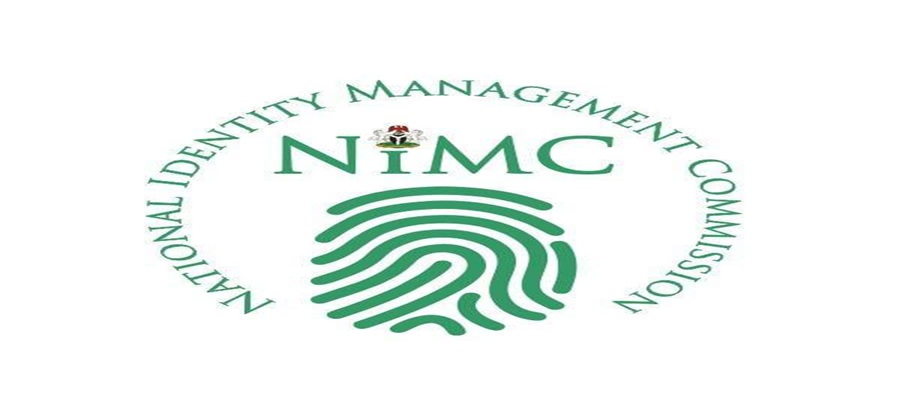Telecom
WTIS Seeks Harmonized Data on Global ICT Access, Affordability

Delegates to the just concluded ITU’s World Telecommunication/ICT Indicators Symposium (WTIS), have endorsed the need to strengthen and adapt the way data on information and communication technologies (ICTs) is collected to better meet the needs of today’s fast-evolving environment.
Accurate data on indicators like network access, service affordability and connection speeds is increasingly recognized as essential to each country’s plans for social development and economic growth.
The three-day symposium is the world’s most important meeting of ICT data experts from around the world. Organized by ITU, and hosted this year by Mexican regulator the Federal Institute for Telecommunications (IFT), the event welcomed over 300 delegates, including government Ministers, industry CEOs and heads of national and international statistics agencies.
“The ICT sector is evolving faster than any sector in human history. The role of this annual symposium is to meet the challenge of measuring the rapid evolution of the sector, and of making sure that ICT data, statistics and indicators are internationally-harmonized, and internationally-comparable,” said Dr Hamadoun I. Touré , ITU secretary-general, in his closing address to delegates.
“Only by doing this can we paint a clear, impartial and – most importantly – universal picture that will enable us to make meaningful comparisons and track the evolution of the ICT ecosystem.”
ITU’s work in global ICT statistics gathering and analysis is relied upon by policy makers around the world, referenced by other influential institutions including the UN family of agencies, the World Bank, the IMF and the World Economic Forum, and acted upon by a growing international community of investors.
For the first time this year, the event featured a High-Level opening day with three key debates around future post-2015 development frameworks, the role of monitoring in building tomorrow’s information society, and strategies for enhancing multi-stakeholder dialogue and national coordination in data collection.
It brought together expert speakers and panelists to share views and best practices, and emphasized the importance of ensuring that ICTs are a cornerstone of the post-2015 development agenda as the catalyst of broad social and economic development.
“This has been the best-attended WTIS event to date, which demonstrates the growing recognition of the importance of data and statistics in the ICT sector. We look forward to seeing even greater participation next year,” said Brahima Sanou, director of ITU’s Telecommunication Development Bureau.
“ITU remains committed to this process, and we look forward to continuing our work with the global community in this field as we move forward”.
In his opening remarks to the conference earlier, WTIS Chair, Luis Lucatero, chief of Regulatory Policy at IFT, said: “The biggest enemy of investment is information asymmetry. An ICT regulator is like an architect, building a strong and robust market that ultimately serves as a platform for national growth across all business sectors. The global dialogue that this event promotes is unique, and will help all players – industry, government and regulators – fulfil the ultimate goal of serving the needs of the ICT consumer.”
This year’s symposium also featured two special side events; the first hosted by Costa Rica on the national approach to data collection in partnership with ICT operators, and the second by Iran on the development and implementation of a new data measurement system.
The event also incorporated a special tour led by IFT to view a community ICT centre developed by Red de Innovación y Aprendizaje (RIA), a learning and innovation project of the Fundación Proacceso which is designed to bring access to technology training to marginalized communities.
The tour was hosted by young co-founder, Jorge Camil Starr, and has already brought the power of ICTs to over 425,000 children and youth in 95 schools in the Mexico City environs.
Telecom
Terra Moves to Expand in African Drone Sector, Secures $22m Funding

Olugbenga Agboola, Flutterwave CEO has joined a $22 million funding extension for Nigerian defensetech start-up Terra Industries as Africa’s fast-growing drone and security technology sector begins to attract capital far beyond traditional venture circles.

The round was led by Lux Capital, with participation from Agboola through Resilience17 Capital and returning investors including 8VC and Nova Global.
It follows an $11.75 million raise just weeks earlier, bringing Terra’s total funding to $34 million as the company accelerates expansion into high-risk security markets.
Terra, founded in 2024 by 24-year-old chief engineer Maxwell Maduka and CEO Nathan Nwachuku, builds autonomous drones and surveillance systems designed to protect critical infrastructure such as energy facilities, logistics corridors and industrial sites. The startup says it is already safeguarding assets worth billions of dollars while securing early federal and commercial contracts.
Agboola’s involvement highlights a broader shift in African tech investment patterns. While fintech has long dominated venture flows, escalating infrastructure sabotage and terrorism threats have elevated demand for locally developed security hardware.
“Nigeria’s drone ecosystem is rapidly evolving from hobbyist and mapping use cases toward industrial monitoring, border surveillance and energy protection, areas increasingly seen as foundational to economic stability.
“This is about backing infrastructure security at scale. Africa’s growth depends on resilient systems that protect critical assets,” said Agboola.
Terra CEO Nwachuku is adamant that locally engineered systems are better suited to African operating conditions. “We are building tools designed for the realities on the ground. Security technology should not always be imported when local innovation can respond faster and more effectively,” he stated.
Lux Capital partner Brandon Reeves underlined that the investor appetite, which has drawn fintech heavyweight interest such as Agboola, reflects rising cross-sector confidence in African defense technology as a commercial category. “Security is a prerequisite for economic growth,” he said.
“As Terra ramps production and expands regionally, its funding milestone illustrates a wider transformation. Drone and autonomous security platforms are no longer peripheral experiments but emerging pillars in Africa’s technology landscape, where fintech leaders and venture capital converge around safeguarding the infrastructure powering the continent’s next growth phase,” said Reeves
Telecom
Temu Assures Compliance Amid Nigeria Data Privacy Probe

Temu, the global e-commerce platform expanding in Nigeria, has officially addressed an inquiry from the Nigeria Data Protection Commission (NDPC) over alleged data privacy violations, confirming its commitment to compliance with the Nigeria Data Protection Act (NDPA) 2023.

Temu
The company’s response follows NDPC’s investigation into Temu’s data processing practices.
In a statement to Nigeria CommunicationsWeek, Temu stressed its dedication to local and international data protection standards, noting ongoing communication with the regulator. “At Temu, protecting user privacy and data security is a top priority. We are committed to complying with applicable laws and regulations in our data practices,” the statement read.
Temu further affirmed: “We can confirm that Temu has received the inquiry and is engaging with the Commission. We will continue to engage in open and constructive dialogue with the NDPC to address any questions or concerns.”
Under Dr. Vincent Olatunji’s leadership, NDPC has ramped up scrutiny of foreign digital platforms to safeguard Nigerian citizens’ personal data—from contact details to financial information—ensuring transparent and secure handling. For e-commerce giants like Temu, managing vast consumer data volumes demands strict regulatory alignment to sustain operations and trust in Africa’s biggest economy.
Industry observers view Temu’s proactive stance as a savvy bid to ease tensions, mirroring Nigeria’s firm handling of platforms like X (formerly Twitter) and fintechs. This engagement underscores NDPC’s rising clout, compelling investors and foreign entrants to prioritise data compliance costs.
Nigeria CommunicationsWeek sees Temu’s approach as a model for global retailers eyeing Nigeria’s booming digital retail sector through 2026.
Telecom
NIMC Rolls Out WorkflowPro for Paperless Correspondence

National Identity Management Commission (NIMC) has deployed WorkflowPro as its official platform for the digital submission and management of correspondence.

NIMC
Kayode Adegoke Phd, Head, Cooperate Communications of NIMC said this in a press statement on Tuesday, 17th February, 2026, pointing out that this was “In furtherance of President Bola Ahmed Tinubu’s Renewed Hope Agenda and the Federal Government’s commitment to institutionalizing a paperless public service.”
According to the statement, “The adoption of WorkflowPro marks NIMC’s formal transition to a paperless operating environment and reflects the Commission’s resolve to strengthen governance, improve administrative efficiency, and standardize records management in line with approved public sector reforms. The platform provides a secure, structured, and traceable system for managing both internal and external communications, thereby enhancing accountability and operational transparency.
“Under the new framework, all external correspondence to NIMC will be processed electronically through WorkflowPro. The system enables end-to-end tracking of submissions, accelerates internal routing and response timelines, and ensures secure electronic archiving of official records. This approach eliminates the risks associated with manual handling of documents while reinforcing compliance with established information management standards.”
Adegoke added that “The implementation of WorkflowPro is consistent with the Federal Government’s Enterprise Content Management (ECM) policy, which mandates the digitization of official records and the elimination of physical file movements across all Ministries, Departments, and Agencies (MDAs) .
“Accordingly, all external correspondence addressed to the National Identity Management Commission must be submitted via the NIMC WorkflowPro platform, accessible through the official portal link or by scanning the designated QR code:
Portal Link:https://workflowpro-nimc.com/Submit . Correspondence
To support effective implementation, NIMC has approved a 30-day transition period from the date of this announcement, during which stakeholders are expected to acquaint themselves with the new process. Upon the expiration of this period, the Commission will discontinue the acceptance of manually submitted letters and paper-based correspondence.
“WorkflowPro was developed by NIMC’s in-house technical team under the directive of the Director-General/Chief Executive Officer, Engr. (Dr.) Abisoye Coker-Odusote. The platform forms part of a broader institutional reform agenda aimed at strengthening the security of official communications, reducing administrative delays, and entrenching digital governance within the public service.
“The National Identity Management Commission enjoins all stakeholders to take note of this policy directive and ensure full compliance.”

 General News3 days ago
General News3 days agoJumia Targets Break-even in 2026 After Strong Q4 Surge

 General News3 days ago
General News3 days agoNigeria’s Banks Race to Meet CBN Recapitalisation Deadline Amid Verification Push

 General News3 days ago
General News3 days agoBOI, MTN Foundation Unveil N1Bn Fund for Women Entrepreneurs

 General News2 days ago
General News2 days agoUBA Unveils Diaspora Platform to Connect Global Africans with Investment, Wealth Opportunities

 E-Financial3 days ago
E-Financial3 days agoNo VAT on Land, Buildings and Rent Under New Tax Law — Oyedele

 News2 days ago
News2 days agoAfrican Leaders Highlight Africa’s AI Ambitions

 E-Financial3 days ago
E-Financial3 days agoCBN Slams Up to N10m Fine on Banks and Cheque Printers for Security Breaches

 General News2 days ago
General News2 days agoNDPC Orders Probe into Temu over Alleged Data Privacy Breaches
























